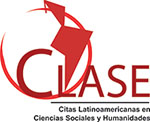A Bibliographic Analysis of the Impact of Recreational Reading on English Vocabulary Acquisition in Ecuadorian Contexts
DOI:
https://doi.org/10.23857/dc.v11i2.4388Palabras clave:
Recreational reading, vocabulary acquisition, English as a foreign language, educational contextResumen
This study investigates the role of recreational reading in enhancing English vocabulary acquisition, focusing on the Ecuadorian educational context. Through a comprehensive bibliographic review, fifteen key studies were analyzed to examine how extensive reading contributes to vocabulary development in EFL learners. The findings consistently demonstrate that free voluntary reading not only supports lexical growth but also strengthens reading fluency and learner motivation. Foundational theories, including Krashen’s Free Voluntary Reading model, highlight the importance of sustained exposure to authentic language materials. However, the review also reveals significant challenges in Ecuador, such as limited access to reading resources, insufficient teacher training, and socio-economic barriers, which hinder the successful implementation of reading programs. The analysis underscores the necessity of a holistic approach that integrates accessible reading materials, contextualized program design, teacher preparation, and motivational strategies. This study concludes that while recreational reading holds great potential for improving English proficiency, its success in Ecuador requires coordinated efforts that address local needs and systemic limitations. The article provides practical recommendations for developing sustainable and effective reading initiatives in Ecuadorian schools.
Citas
Andrade, G., & Alarcón, R. (2020). The impact of reading motivation on EFL learning in Ecuadorian high schools. Journal of Language and Education, 6(3), 45–57.
Bravo, M., & Valle, P. (2022). Reading habits and their correlation with English proficiency: A study in Ecuadorian secondary schools. International Journal of Applied Linguistics, 32(2), 87–103.
Chávez, A., & Guevara, D. (2021). Barriers to extensive reading in Ecuador: A qualitative analysis. Ecuadorian Journal of Education, 10(1), 110–125.
Cisterna, C., & Jiménez, L. (2019). Extensive reading and its effect on EFL vocabulary acquisition: A Latin American perspective. Language Learning Journal, 47(4), 499–514.
Day, R., & Bamford, J. (2002). Top ten principles for teaching extensive reading. Reading in a Foreign Language, 14(2), 136–141.
Jeon, E. Y., & Yamashita, J. (2020). The effects of extensive reading on reading comprehension, reading rate, and vocabulary acquisition: A meta-analysis. TESOL Quarterly, 54(3), 615–643.
Kim, S., & Kim, J. (2022). Investigating vocabulary acquisition through graded readers: A longitudinal study. System, 109, Article 102865.
Krashen, S. (2004). The power of reading: Insights from the research (2nd ed.). Libraries Unlimited.
Lai, F. (2019). Motivation and engagement in L2 reading: A meta-analysis. Language Teaching Research, 23(2), 217–243.
Lee, S. Y. (2019). Free voluntary reading: New research, applications, and controversies. Reading in a Foreign Language, 31(1), 1–12.
Lee, H., & Lee, J. (2021). Exploring the link between reading engagement and vocabulary learning among EFL learners. Applied Linguistics Review, 12(2), 215–238.
Liao, Y., Wang, J., & Chuang, C. (2020). Extensive reading in the digital era: Effects on vocabulary acquisition and reading motivation. Computer Assisted Language Learning, 33(5–6), 451–475.
Ministerio de Educación del Ecuador. (2016). Currículo de los niveles de Educación Obligatoria: Inglés. https://educacion.gob.ec
Moreta, S., & Ortega, L. (2023). English reading practices in rural Ecuador: Challenges and strategies. Revista de Investigación Educativa, 15(2), 201–220.
Nation, I. S. P. (2013). Learning vocabulary in another language (2nd ed.). Cambridge University Press.
Pellicer-Sánchez, A. (2020). Incidental vocabulary learning through reading: A bibliographic review. Language Teaching, 53(1), 1–17.
Peters, E., & Webb, S. (2018). The effects of reading and listening on incidental vocabulary acquisition. Studies in Second Language Acquisition, 40(3), 551–577.
Pulido, D., & Hambrick, D. Z. (2008). The virtuous circle of reading and vocabulary knowledge. Applied Linguistics, 29(1), 116–137.
Ramos-Holguín, B., & Aguirre Morales, J. (2021). Innovations in EFL teaching in Latin America: Practices and challenges. EFL Journal, 6(4), 66–81.
Rivas, P., Torres, G., & Zambrano, K. (2020). Implementing extensive reading programs in Ecuadorian secondary education: Outcomes and reflections. Language Education and Development, 5(2), 90–106.
Richards, J. C., & Renandya, W. A. (2020). Methodology in language teaching: An anthology of current practice (2nd ed.). Cambridge University Press.
Sarmiento, F., & López, R. (2024). Reading to learn: A pilot extensive reading project in Ecuador. Journal of EFL Pedagogy, 8(1), 15–34.
Vera, R., & Castillo, E. (2019). English language policy and practice in Ecuador: Achievements and obstacles. Revista de Lingüística Aplicada, 11(3), 140–159.
Webb, S., & Nation, I. S. P. (2017). How vocabulary is learned. Oxford University Press.
Wigfield, A., & Guthrie, J. T. (1997). Relations of children’s motivation for reading to the amount and breadth of their reading. Journal of Educational Psychology, 89(3), 420–432.
Yamashita, J. (2021). Extensive reading: A cornerstone of second language acquisition. Annual Review of Applied Linguistics, 41, 179–197.
Yamashita, J., & Noro, T. (2023). Revisiting extensive reading: Global perspectives and local practices. Language Teaching Research, 27(2), 189–210.
Cooper, H. (2017). Research synthesis and meta-analysis: A step-by-step approach (5th ed.). Sage Publications.
Hernández Sampieri, R., Fernández-Collado, C., & Baptista Lucio, P. (2018). Metodología de la investigación (6th ed.). McGraw-Hill Interamericana.
Krashen, S. (2004). The power of reading: Insights from the research (2nd ed.). Libraries Unlimited.
Nation, I. S. P. (2013). Learning vocabulary in another language (2nd ed.). Cambridge University Press.
Siddaway, A. P., Wood, A. M., & Hedges, L. V. (2019). How to do a systematic review: A best practice guide for conducting and reporting narrative reviews, meta-analyses, and meta-syntheses. Annual Review of Psychology, 70, 747–770.
Descargas
Publicado
Versiones
- 2025-05-27 (2)
- 2025-05-27 (1)
Cómo citar
Número
Sección
Licencia
Derechos de autor 2025 Elly Rachel Espin Vásconez, Frans Andrés Recalde García

Esta obra está bajo una licencia internacional Creative Commons Atribución 4.0.
Authors retain copyright and guarantee the Journal the right to be the first publication of the work. These are covered by a Creative Commons (CC BY-NC-ND 4.0) license that allows others to share the work with an acknowledgment of the work authorship and the initial publication in this journal.






